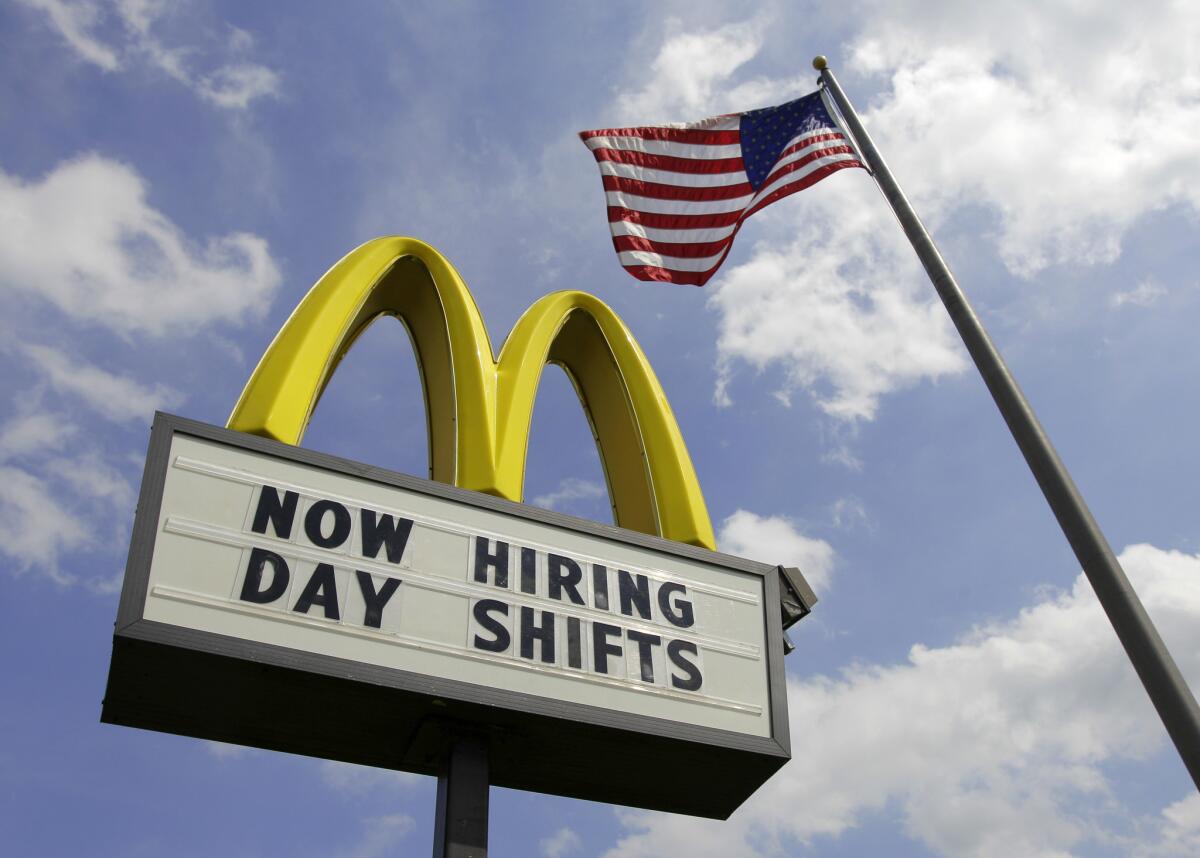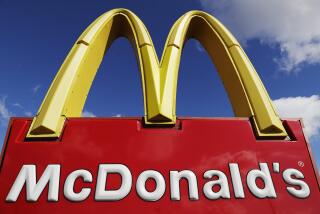The McDonald’s ‘raise’ exposes the shame of franchising

You don’t have to read very far into Wednesday’s announcement by McDonald’s that it is raising its workers’ pay to find the catch.
The very first sentence says it applies to its “company-owned restaurants.” That’s only about 10% of its 14,350 stores nationwide. The rest are owned by franchisees, who “operate their individual businesses and make their own decisions on pay and benefits for their employees.”
At least, that’s what McDonald’s wants you to think. The National Labor Relations Board thinks differently. Its general counsel said on Dec. 19 that the Oak Brook, Ill., company “engages in sufficient control over its franchisees’ operations...to make it a putative joint employer with its franchisees, sharing liability for violations of our Act.” It’s pursuing a raft of unfair labor practice complaints against the main company and franchisees in hearings that are set to begin in May in New York and proceed during ensuing weeks to Chicago and Los Angeles.
That surely explains why McDonald’s went to such lengths to specify that it has nothing to do with pay and benefits for workers at 90% of the restaurants that carry its name and livery, but only for 90,000 of the 750,000 workers who labor for the McDonald’s brand nationwide.
The battle between the company and the NLRB has been going on at least since last July, when the general counsel first said it had designated McDonald’s as a joint employer with its franchisees. As we observed at the time, this conclusion was inescapable:
“McDonald’s, like many other franchisors, exercises rigorous control over almost all aspects of a franchisee’s operations -- uniforms, food quality and preparation, store design, hours, prices. The branded company monitors these standards with secret shoppers, and backs them up with economic cudgels that can make indentured servitude look like a big party. A well-performing franchisee can be offered more stores, and a poor performer might find a competing store opening down the street.”
In its December announcement, the NLRB counsel said it found “merit” in allegations that the company jointly with franchisees had engaged in “discriminatory discipline, reductions in hours, discharges, and other coercive conduct directed at employees in response to union and protected concerted activity, including threats, surveillance, interrogations, promises of benefit, and overbroad restrictions on communicating with union representatives or with other employees about unions and the employees’ terms and conditions of employment.”
Is it possible that this pattern of behavior erupted from within the individual franchisee community without the knowledge or connivance of the big company from Oak Brook? The NLRB hearings may tell the tale.
Where does this leave the announcement of the raise? As we observed when Wal-Mart announced its own raise for low-wage workers in February, raises for minimum-wage staff of a dollar per hour are an encouraging trend, but still leave those workers far behind where they were in the 1960s, a half-century ago.
The buying power of the federal minimum wage, which is $7.25 an hour today, peaked in 1968, when it was nominally $1.60 an hour. That would be the equivalent of $10.88 today. If the minimum wage had kept pace merely with worker productivity since then, it would be more than $16.54 today. Try proposing a $16.54 minimum wage to the average fast-food franchisee today, and you’ll hear squealing from here to the Chicago stockyards.
It’s proper to note that McDonald’s is making improvements to benefits for workers. Full- and part-time employees at company-owned locations will be able to accrue paid time off. Workers for company-owned and franchised stores will have access to education programs that include tuition assistance for high school equivalency, college credits and English as a second language classes.
But the overall package highlights that franchising is just one of the ways that big American companies have devised to shed full responsibility for the people who work for them. They label them “independent contractors” and saddle them with expenses for everything from uniforms to gasoline. They turn over work to foreign labor recruiters, as Southern California Edison has done with hundreds of information technology workers. They outsource jobs to local subcontractors, as Wal-Mart has done with warehouse staff.
Here and there, government watchdogs or employment advocates succeed in putting the kibosh on such schemes; last year, Wal-Mart and Schneider Logistics, its warehouse operator, reached a $21-million settlement with Riverside County warehouse workers for unpaid wages and penalties. That happened after a federal judge ruled that the companies were joint employers, despite Wal-Mart’s assertion that Schneider operated independently.
So, yes, one cheer for McDonald’s for raising its employees’ wages. When it acknowledges that its effective control over its franchisees extends to their employees’ pay, and then when it gets those workers a raise, it might deserve two cheers more.
Keep up to date with the Economy Hub. Follow @hiltzikm on Twitter, see our Facebook page, or email mhiltzik@latimes.com.
More to Read
Inside the business of entertainment
The Wide Shot brings you news, analysis and insights on everything from streaming wars to production — and what it all means for the future.
You may occasionally receive promotional content from the Los Angeles Times.











